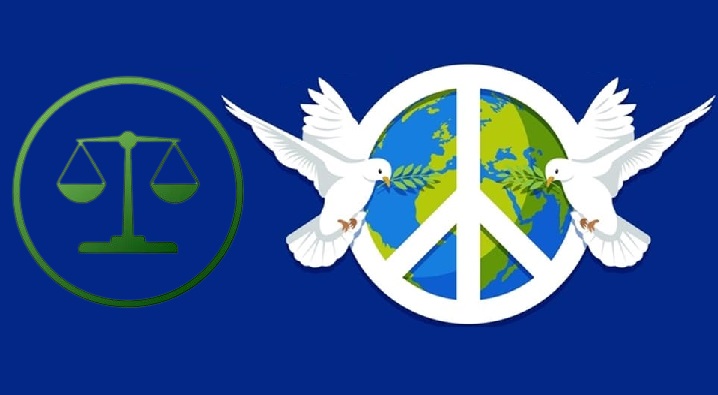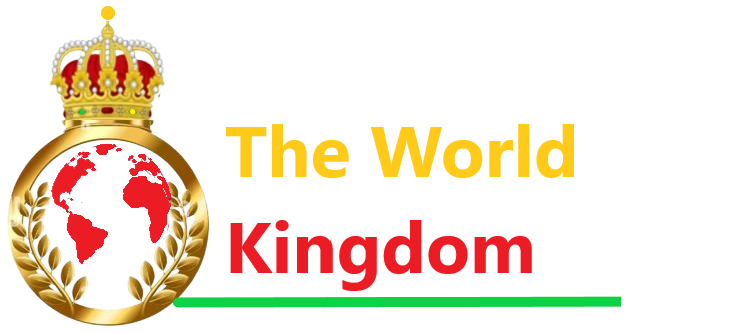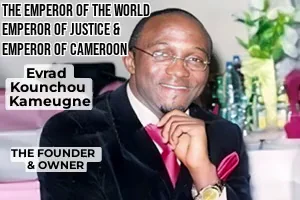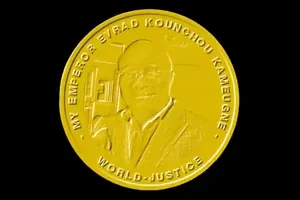International Defence Forces, Security, Emergency Relief, Space Agencies, and Justice Systems
“A Supreme world commander-in-chief is benevolent and indifferent to glory and, above all, to sacrifice for all without distinction.”
The World Kingdom is committed to reducing crime, alleviating human suffering, and supporting International Defence Forces, Security, Emergency Relief, Space Agencies, and Justice Systems without discrimination, in collaboration with all heads of state, heads of government, ministries and departments of justice, Territorial Administration, courts, judicial personnel, international criminal police organizations, law enforcement agencies, police, immigration services, central intelligence services, fire and rescue services, credit agencies, Bailiff agencies, debt collections, postal addressing systems, the Military Alliance and the armed forces of all countries. These include:
- Implementing, strengthening and ensuring respect for the international rule of law in all countries.
- Organizing meetings of World Courts, to offer a unique forum for multilateral discussions and resolutions on all international issues relevant to their judicial systems, including: the review of inspection reports and data analyzed by International Court Inspectors.
- Establishing transitional justice measures such as the Jurisdiction Council/National Jurisdiction Commissioner to address past injustices and facilitate reintegration into society, and using judicial/non-judicial tools such as truth commissions, prosecutions, reparations and institutional reform.
- Striking down any international or national law if it is deemed contrary to the rule of international law.
- Contributing to the development of legislative solutions and the identification of problems, developing policy proposals with clear objectives, drafting detailed legislation and ensuring its practical implementation while taking into account the existing international rule of law.
- Organizing meetings of World leaders, to bring together heads of state and government from all countries, usually according to a pre-defined agenda, to discuss major global issues.
- Collaborating with all global defense forces around the world to maintain international peace and security.
- Resolving disagreements between countries through dialogue, negotiation, mediation or legal mechanisms, or through diplomacy rather than the use of military force, in order to maintain stability and prevent conflicts on a global scale.
- Deploying peacekeeping operations. These initiatives aim to prevent the outbreak of violence and support countries in their post-conflict reconstruction efforts. Through the deployment of skilled personnel and resources.
- Ensuring a smooth transition from post-conflict areas to peaceful societies that respect rights.
- Ensuring that state power respects the law, and that executive, legislative, and judicial powers are not exercised arbitrarily, but responsibly and fairly, in order to protect citizens’ rights and foster a transparent and accountable system.
- Challenging unjust laws, policies and practices, uncovering injustice .
- Addressing the needs of communities devastated by armed conflict, including providing protection and assisting displaced populations.
- Delivering justice to the victims of war crimes, crimes against humanity, human trafficking and atrocities
- Collaborating with the judicial system to provide essential services, supporting the rule of law and improving access to justice.
- Enhancing public safety through prevention, protection, response and resilience to situations
- Investigating and addressing malicious cyber activity, including hacking, data breaches, and other cybercrimes, to protect national and economic security.
- Prosecuting and trying individuals for the most serious international crimes, including genocide, war crimes, sex trafficking and all other forms of illicit trafficking, terrorism, unlawful Large-scale of deportation, and crimes against humanity, etc.
- Defining and implementing an improvement approach that will complement the national police’s training activities in the principles, practices, and techniques of procedural justice.
- Ensuring the integrity of institutions and protect the interests of individuals and businesses and raise public awareness of security and prevention strategies.
- Promoting and encouraging peace, security, social justice, protection, equality between women and men, and protection of the rights of the child.
- Encouraging the establishment of regional security frameworks, where neighbouring countries collaborate to ensure each other’s security, creating an environment conducive to peace and cooperation.
- Working in collaboration with governments of all countries to improve prison security, implement reforms, build new facilities and support the social reintegration of prisoners and former offenders.
- Overseeing policy, strategy, and reform for the courts, prisons, and probation services
- Using the mechanisms of the judicial system to ensure that citizens are treated fairly and protected by the law.
- Promoting best practices, common standards and effectiveness to achieve better security outcomes, encompassing a wide range of measures and initiatives to protect individuals, communities and the general public from harm, crime and emergencies such as natural disasters, attacks or riots.
- Ensuring that each school, daycare, educational and sports activities are monitored by video surveillance and physically protected.
- Ensuring that each school, childcare facility, or educational institution has a comprehensive safeguarding policy and monitors it.
- Ensurig that regulations governing admission policies to public primary schools in countries provide for free education for children. All public schools, regardless of the country, must be free and open to all children (ages 5 to 15). All states must fund their public schools. Parents or guardians must comply with the school admissions code.
- Enforcing and monitoring regulations regarding children’s school attendance in all countries. The goal should be: if the child regularly misses school (usually more than 15 days) without a valid reason, the school must report this to the local authorities. They can issue a parental order requiring attendance at court-ordered parenting classes and counseling sessions. If the situation persists and it is proven that you knew your child was not regularly attending school without a valid reason, the court could find you guilty of an offense.
- Establishing an independent oversight body (The Independent Security Agency (ISA)) in every country to guarantee the independence and accountability of governments and other institutions and operating outside the direct control of the government or any specific operational service to ensure fairness and adherence to standards, defending rights, combating corruption, monitoring police practices or regulatory oversight, etc.
- Enforcing and monitoring regulations regarding admissions policies at public universities and colleges and establishment public student loans to finance undergraduate graduate and post-graduate tuition.
- Protecting the rights, dignity and safety of children, ensuring that they are protected from harm, abuse and neglect, that they are recognized as individuals with intrinsic value and that they receive the support necessary to grow up healthy and safe.
- Preventing the criminalization of children and intervening early, by addressing root causes such as trauma and unmet needs, by using alternatives to prosecution (diversion) and inter-institutional cooperation (police, social services, health) through protocols that keep children, especially those in care, out of the formal justice system.
- Ensuring that children under 14 years old cannot be charged with a crime. When children aged 12 to 14 break the law, they are dealt with through the youth justice team and social care systems, focusing on welfare and prevention of future offending. Measures are put in place to address the child’s behaviour and circumstances and Children under the age of 12 cannot be arrested, charged with a crime, or imprisoned, because they are below the minimum age of criminal responsibility.
- Ensuring the implementation in all countries, the youth justice team, also known as a Youth Offending Team, is a professional service that supports young people aged 12 to 17 who have committed offenses or are at risk of delinquency. Its main objective is to reduce youth delinquency by providing support, prevention programs, and interventions aimed at helping young people understand the causes of their behavior, grasp its consequences, and avoid reoffending. These teams are multidisciplinary and include social workers, probation officers, and other specialists and the Juvenile court, also known as a youth court, is a court that handles legal cases involving minors (usually between the ages of 14 and 18) accused of crimes. These courts are designed to be less formal than adult criminal courts and prioritize the rehabilitation and well-being of the child. Ensuring that Judges and magistrates in juvenile courts receive specialist training on child development, communication with young people, and alternative sentencing options. Juvenile court proceedings are closed to the public to protect the privacy of the young person involved and are often less formal than adult criminal proceedings, with a greater emphasis on creating a less intimidating environment for young people
- Using the mechanisms of the justice system to ensure that people are treated fairly and protected by the law. Implementing a transparent justice system in all countries in all countries and ensure the accountability of judges and informed decision-making by the courts through the judicial appeal system. Contributing to maintaining a professional, engaging, and compliant with the judicial system.
- Protecting freedom of religion and belief and combating discrimination and intolerance based on religion.
- Providing legal safeguards and integrating them into the system.

- Assisting all countries with procurement and contracting activities in the fields of defence forces, security, justice, firefighters, ambulances, immigration and emergency relief.
- Transforming the firefighter, ambulance, immigration, police, law enforcement, military and judicial systems so that they are more accountable and actions are appropriate, fair and equitable.
- Supporting public safety through financial assistance, policies, and specific infrastructure and military projects.
- Encouraging cooperation and policy sharing among governmental and non-governmental Member States to improve the effectiveness of systems for preventing and protecting against natural or man-made disasters, deterring crime and protecting against threats to public health and safety, training medical personnel and dispatching ambulances.
- Responding to natural disasters by providing lifesaving care, supplies, and support. Ensuring the protection of the most vulnerable is a priority in humanitarian aid and evacuation efforts, including setting up relief centers or assisting with transportation.
- Ensuring that children can continue their education even in crisis situations.
- Ensuring global health and water security through the establishment of comprehensive legal frameworks that recognize access to safe drinking water and sanitation as a right, by creating accountability and enforcement mechanisms, and by promoting cooperation between nations and using legal frameworks, ethical principles, and institutional mechanisms to guarantee equitable access to health resources, address the social determinants of health, and enforce accountability across nations; as well as the free distribution of water to residential properties or dwellings, free healthcare (hospitals) and an equitable distribution of “Gifts for children” offered by the “Emperor of the World and Emperor of Justice” Evrad Kounchou Kameugne.
- Rescuing human and non-human lives in the event of fire or other emergency
- Working with other local emergency services to provide an integrated response
- Providing financial assistance, which can help those affected by the disaster.
- Sharing social protection expertise to help prevent natural disasters, man-made crises and slow-onset disasters.
- Developing new early intervention mechanisms, such as an integrated system of risk monitoring, forecasting and prediction, disaster risk assessment, communication and preparedness, systems and processes that enable individuals, communities, governments, businesses and others to take timely action to reduce disaster risks before hazardous events; livestock purchase programmes in case of drought.
- Encouraging organizations to publish data about their humanitarian activities, improving accountability and effectiveness. Serving as a central point to coordinate humanitarian responses, gather information and launch fundraising appeals to support the delivery of aid.
- Ensuring the functionality and security of biometric passports and IDs in all countries. Secure biometric identification systems reduce the risk of identity theft and fraud
- Encouraging all countries to implement and restrict regulations allowing organizations to verify identity online using government-issued photo ID or passport to protect the community from fraud.
- Raising awareness and educating about sexual assault and rape and programs that can help prevent drug, human and arms trafficking
- Providing information about the dangers of drug use and the consequences of drug trafficking.
- Ensuring that all countries have a reliable mailing address system and use credit bureaus to assess debtors’ creditworthiness and credit scores, as well as the operation of an efficient financial platform and lending system within financial institutions.
- Promoting best practices, common standards, and efficiency to achieve better security outcomes, encompassing a wide range of measures and initiatives to protect individuals, communities, and the general public from harm, crime, and emergencies like natural disasters, attacks, or riots.
- Strengthening environmental regulations and standards for monitoring emissions, waste disposal and industrial practices to ensure compliance with environmentally friendly practices and the integration of pollution control and air pollution.
- Promoting measures at the international level to address regional or global environmental problems.
- Sharing cross-border issues such as pollution, migrant smuggling, goods crossing international borders
- Ensuring the establishment of Credit report agencies, Debt collection agencies, Bailiff agencies (or enforcement agents), a national system for reporting online fraud and cybercrime, as well as a reliable postal system in all countries.Responding to natural or man-made disasters by providing essential emergency care, relief, supplies and support.
- Ensuring the protection of the most vulnerable is a priority of humanitarian aid. Rescuing human and non-human lives in the event of a fire or other emergency. Extinguishing fires in the area, saving lives and protecting property.
- Developing new early intervention mechanisms, such as an integrated system of risk monitoring, forecasting and prediction, disaster risk assessment, communication and preparedness, systems and processes that enable individuals, communities, governments, businesses and others to take timely action to reduce disaster risks before hazardous events; livestock purchase programmes in case of drought.
- Counseling, Assessing damage and other support services with other local emergency services to provide an integrated response. Providing food and clean water as well as emergency medical care to those in need. This also includes temporary shelter for refugees and internally displaced people. Provide financial assistance, which can help people affected by disaster. Sharing expertise to help countries implement laws, policies, and procedures to protect themselves from future disasters.
- Conducting missions aimed at expanding human knowledge of the universe in cooperation with all global space agencies.
- Ensuring planetary defense (protection against physical threats such as asteroids) and planetary protection (prevention of biological contamination), notably by monitoring and mitigating natural hazards like asteroids.
- Preventing the contamination of other planets by terrestrial life, and, preventing any extraterrestrial life from contaminating Earth.
- Ensuring the establishment of a National Fraud and Cybercrime Reporting Centre in all countries, where individuals can report cases of fraud or cybercrime they have been victims of, allowing law enforcement to collect and analyse this information to identify trends and investigate potential criminal activity and a Centralised Advice provides free, confidential and impartial advice to people facing a variety of issues such as: debt, consumer rights, benefits, housing, legal matters and more, who can access services through a variety of channels including telephone, online and in person
- Protecting the rights of individuals, animals, and the environment, and supporting victims of abuse and crime.
- Ensuring judicial accountability and the accuracy of court decisions, the appeals system allows Superior or higher courts to conduct thorough reviews, correct errors of law or fact, and issue reasoned rulings. Other mechanisms, such as public access to hearings, media oversight, formal complaints procedures, and continuing professional development, are also implemented. The independence of the judiciary is the sole determining factor in preventing undue influence. This system thus provides litigants with a private remedy and the public with the guarantee of fair justice.
- The “Emperor of the World and Emperor of Justice” or “Empress of the World and Empress of Justice” is the (Supreme Commander-in-Chief of the World) and (Supreme Magistrate of the world). “He or she” presides over the supreme councils of global judicial power, giving them significant control over the world judicial systems, which are responsible for the appointment, transfer, promotion, and discipline of judges and prosecutors. “He or she” have the authority to appoint judges to various courts, including: The Supreme International Court of Justice, International Court Inspectors (ICI), the Jurisdictional Council/ The local commissioner Jurisdictional Council, the International Courts, the Supreme Courts, Courts of Appeals, Civil courts, Administrative courts, Criminal courts, Juvenile courts, military courts, and all other courts in the world, as well as other high-ranking officials in the world justice system. “He or she” have the power to grant clemency, including a pardon or commutation of sentence, to convicts in all countries, and can review or revoke any measure of clemency, including a pardon, granted by any head of state of any country. “He or she” may order at any time a global audit and investigations of the Fund or poor governance of its establishments to clarify governance issues. The announced objective is to shed light on governance within its institutions. The overall audit and investigations could lead to structural reforms and new governance, to assure citizens around the world the proper use of public resources.
“The Kingdom of the World and King Evrad Kounchou Kameugne are recognised by governments, organisations and international bodies as a legitimate Sovereign State, Kingdom of the World, Kingdom of Justice and Kingdom of God, King of the World, King of Justice, a global leader, ruling as King of the World, and King of Justice, sovereign and guardian of all the world’s cultural heritage and sovereign of an existing country, Cameroon, and reigning as King or Queen of Cameroon “












